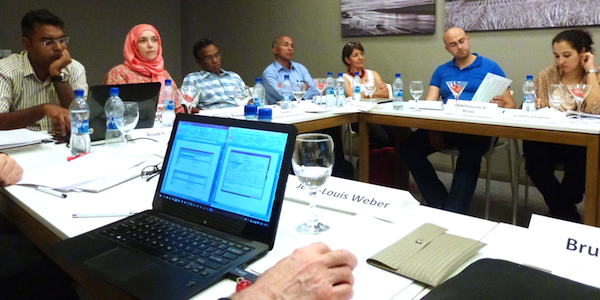The Global Development Network (GDN) has recently launched a one-year research program to complement existing initiatives in natural resource management and accounting in three countries: Madagascar, Mauritius, and Morocco.
The three project teams are focusing on diverse issues such as coastal degradation, and land and water use and how the changes or depletion of these resources affect the economy. Results and policy recommendations will be presented to government authorities in each country.
“This GDN research capacity-building program aims at creating localized and contextualized knowledge to provide policy-relevant indicators and conclusions. Improving the capacity of local researchers is seen as a sustainable means to bridge the gap of deep local knowledge and better data in the field of natural capital accounting,” said Pierre Bertrand, a program associate for GDN, based in New Delhi.
- The team in Madagascar will create physical accounts using methods based on spatial data to map land use and river and lake water levels in the Antrema region in order to build inventories. The information will then be transferred to the statistical authorities responsible for natural capital accounting. The principal investigator is Solofo Andriamanantsoa Rakotondraompiana, from the University of Antananarivo.
- Using existing water accounts, the team in Mauritius will conduct a scenario-based analysis of the sustainability of water governance in Mauritius. They will then design policy recommendations emphasizing the importance of the sustainable and efficient use of water and the tradeoff between different water usages. The team will also be doing data collection and conducting interviews for the governance piece. The principal investigators are Aleksandra Peeroo and Riad Sultan, from the University of Mauritius.
- The study in Morocco will combine physical oceanography and coastal modeling with natural resource economics. The “Drivers-Pressure-State-Impact-Response Framework” will be used to explore the key drivers of change and the implications of these drivers. The team will then assess how the degradation from current practices corresponds to a loss in economic benefits for the selected tourist beaches (Tetouan) using real market prices, and what changes can prevent the losses. The principal investigator is Maria Snoussi, from the Mohammed V-Agdal University.
Scientific advisors will mentor the teams during the course of the project, and GDN will organize several workshops during the year. The first workshop took place in Mauritius January 29-30, 2015, and focused on refining project proposals, concepts and methodology. In June 2015, a peer review workshop will be held in Morocco, and the final workshop will be a policy dialogue and dissemination workshop held in Paris in December 2015, which aims at linking the research with policy makers and stakeholders in the three countries.
A scientific committee is overseeing the overall quality of the program, whose members include Ricardo Martinez Lagunes, an environmental economist with expertise in NCA; Claire Plateau, with the French National Institute of Statistics and Economic studies; and Jean-Louis Weber with the European Environment Agency.
The project is being funded by the French Ministry of Foreign Affairs and International Development and the French Development Agency and will go from December 2014 to November 2015.

